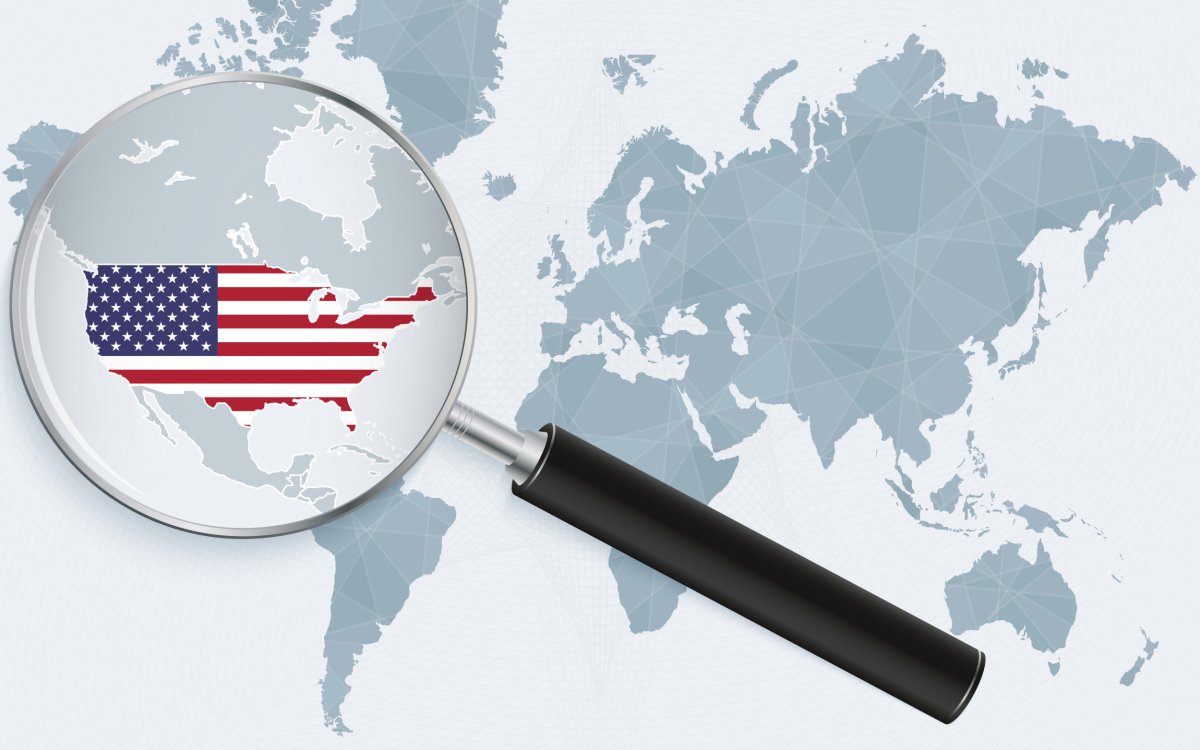You hardly need to be a Second Amendment hawk to find President Biden's reaction to the assassination of Shinzo Abe perplexing. "One thing did get my attention," Biden said on Friday when asked about the murder of Japan's longest-serving prime minister. "This was the first use of a weapon to murder someone in Japan. And I think we have thus far... between 3,000 and 4,000 cases. They have one. One. One."
Putting aside the question of good manners (recent years have taught us that no time is too early to politicize a tragedy), what got my attention during the President's remarks was the immediate, unapologetic foisting of domestic American politics on a completely foreign affair.
Of course, President Biden is hardly the first to engage in this kind of centrifugal thinking when it comes to the U.S. The unblinking pivot from foreign to domestic is nothing short of a long-standing tradition. Call it American Solipsism: The rest of the world exists only to give us morality lessons about ourselves.

Once you become aware of this tendency, you see it everywhere in discussions that should be about foreign affairs. Spend five minutes watching cable news, scrolling Twitter, or listening to our politicians talk and you'll learn, perhaps to your surprise, that the war in Ukraine is not actually about Ukraine but about former President Donald Trump; he is partially responsible for it, as former Lt. Colonel Alexander Vindman and CNN would have it, to say nothing of how it will affect his 2024 calculations. You may have in your innocence thought that India's history is about Indians, but you are wrong; it's just a metaphor for American race relations. Saudi Arabia, too, exists only in relation to the U.S., as a proxy for America's fossil fuel addiction, while Hungary is the nationalist Right's utopian fantasy for America, as Denmark is the socialist Left's.
For Americans, foreign affairs is a house of mirrors.
But the truth is, this America-centric worldview is mutual. On Thursday, the European Union issued a resolution condemning the United States Supreme Court's decision to overturn Roe v. Wade, which guaranteed American women the right to an abortion.
"It teaches us a lesson: Women's and girls' human rights can never be taken for granted, and we must always fight to defend them," said Swedish politician Helene Fritzon, according to the Associated Press. (Current Swedish law, by the way, limits abortion after 18 weeks, a window not much longer than Mississippi's 15-week ban that triggered Dobbs v. Jackson.)
How exactly is the U.S. legal system of any concern to the EU?
But it wasn't just Europe. After the overturning of Roe, vigils were held in Canada. The United Nations, bastion of moral coherence, lamented the decision, along with many world leaders. The first minister of Scotland even decried the day of the decision as "one of the darkest days for women's rights in my lifetime." Hundreds in Paris and in Tel Aviv took to the streets last week to demonstrate, never mind the fact that neither country has ever had the kind of sweeping abortion right created by Roe. All were seemingly driven by the same vague sense that changes to American constitutional law might mystically affect abortion policies worldwide.
This has been going on for a while. We saw the ascent of Trump mourned around the world, as if the united world government had been subdued by aliens. We've seen Black Lives Matter protests against police brutality flicker from France, where politicians continue to debate wokism, to Japan. We've heard Vladimir Putin rant about "cancel culture" (ignoring the rather deadly one that he administers, of course), and Israeli right wingers refer to the need for a "Second Amendment" (the lack of an Israeli constitution notwithstanding).
Even in its twilight as a world power, America maintains an outsized cultural grip on the world's imagination. That much is clear. But what we're seeing now is something deeper: a global desire to participate if not star in the all-time biggest, most asinine reality show of the American culture war.
It's a simple truth of local politics, both within and without the United States, that crafting real legislation that solves the real problems of your local constituents is hard. Truly effective social work is granular, slow, full of compromises, and usually short on glory.
Role-playing as American culture warriors on the other hand puts you on the epic world stage. It's just so much easier, so much more viscerally rewarding.
The world chafed at Trump's America First slogan. Now we are all bought in on America Only. Is it any wonder we Americans think the world revolves around us?
Adaam James Levin-Areddy is a journalist and news producer. He worked at CNN and Axios on HBO and hosts the Uncertain Things podcast.
Uncommon Knowledge
Newsweek is committed to challenging conventional wisdom and finding connections in the search for common ground.
Newsweek is committed to challenging conventional wisdom and finding connections in the search for common ground.
About the writer
To read how Newsweek uses AI as a newsroom tool, Click here.








